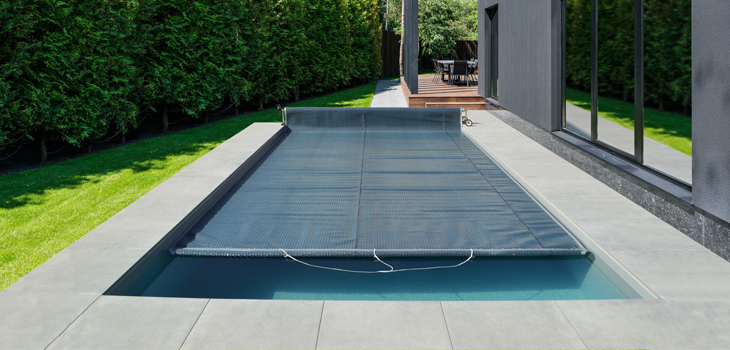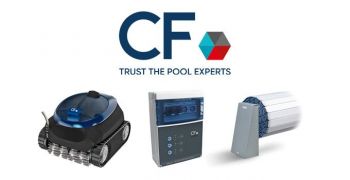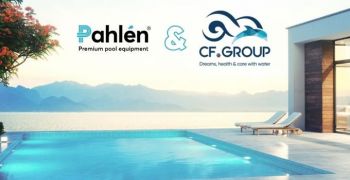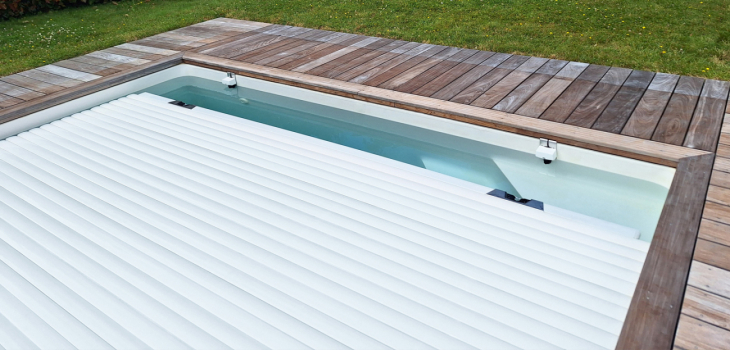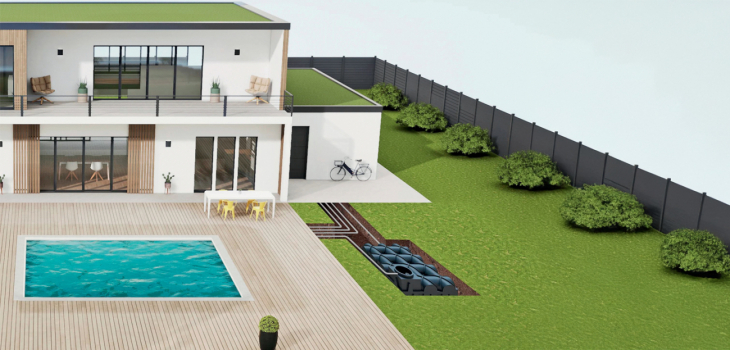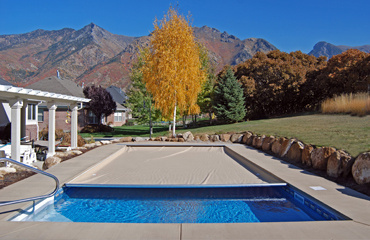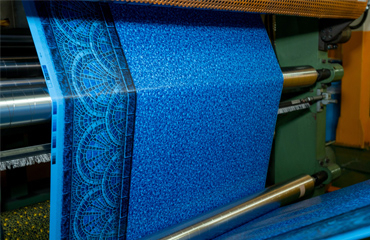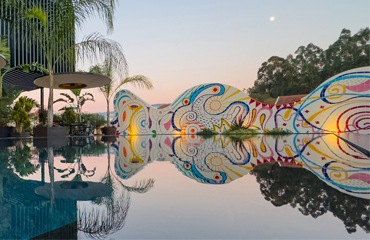DEL innovates by offering a cover with new bubble shape. The DEL Premium Alveolar cover is the result of 100% CF group R&D technology. This optimises the thermal insulation of the pool to maintain the water temperature and further reduce energy consumption.
The bubble cover with an exceptional thermal performance and unique design
Not only the bubble has a patented shape but its curve contains more air. The exclusive design also allows the inter-bubble spaces to be kept to a minimum, which contributes to excellent insulation by reducing thermal bridges (-19% compared to reference Geobubble covers and -39% compared to classic round bubbles) between the water in the pool and the ambient air. These two features provide up to 7%* more insulation performance than a Geobubble. The 550 microns thickness combined with a design that minimises material thinning and a UV-treated material: all these features ensure its resistance and durability.
The bubble cover increases heating power, especially with the translucent blue version which transmits more than 80%* of the sun's UV radiation to the water thanks to its two transparent layers, thus reducing the energy consumption needed to heat the water.
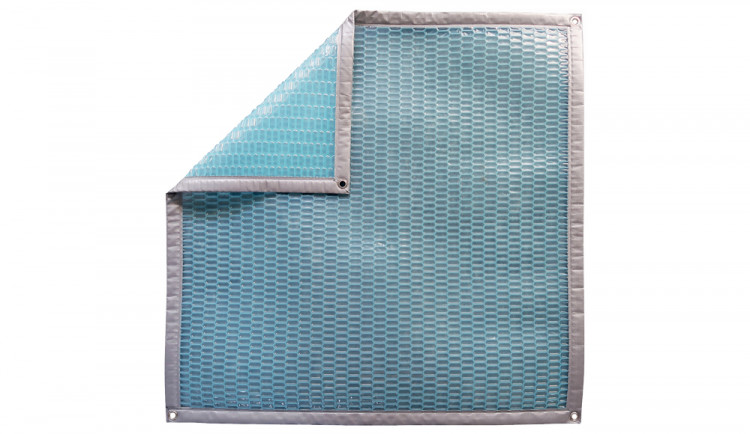
The translucent blue version
It protects the water from external debris and pollution, reducing the need for treatment, maintenance as well as filtration time. This is further accentuated when using the black opaque version which also offers an excellent insulation, with a heating capacity only slightly lower than the translucent blue version. Both allow a retention of evaporation of more than 99%* when the cover is on the water surface, which is a saving of 180 litres* on the 200 litres that evaporate over a day with 2 hours of swimming. The alveolar covers are produced in Brittany, in the CF Group factory of Brécé.
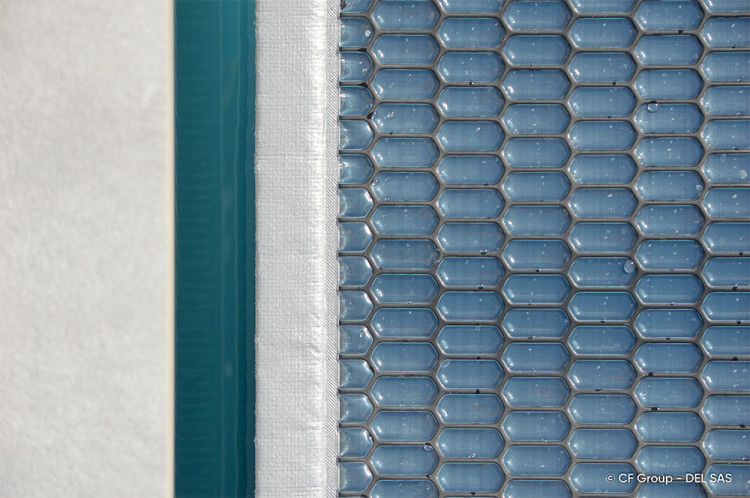
The exclusive design allows the inter-bubble spaces to be kept to a minimum
* source: LNE test - February 2022 - Calculation of thermal resistance, according to PR EN 17645, EN ISO 6946 and NF EN ISO 10211.


